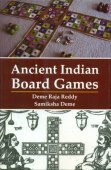Dhadi, Ḍhāḍī: 8 definitions
Introduction:
Dhadi means something in Hinduism, Sanskrit, the history of ancient India, Marathi, Jainism, Prakrit, Hindi. If you want to know the exact meaning, history, etymology or English translation of this term then check out the descriptions on this page. Add your comment or reference to a book if you want to contribute to this summary article.
In Hinduism
Kavya (poetry)
Source: OpenEdition books: Vividhatīrthakalpaḥ (Kāvya)Dhāḍī (धाडी) in Prakrit (or Dhāṭī in Sanskrit) refers to an “assault”, as is mentioned in the Vividhatīrthakalpa by Jinaprabhasūri (13th century A.D.): an ancient text devoted to various Jaina holy places (tīrthas).—(CDIAL 6772; Jacobi 1886 p. 118; Williams 1959 p. 363; ST p. 23, 70, 151; JOIB XXXIV p. 64).

Kavya (काव्य, kavya) refers to Sanskrit poetry, a popular ancient Indian tradition of literature. There have been many Sanskrit poets over the ages, hailing from ancient India and beyond. This topic includes mahakavya, or ‘epic poetry’ and natya, or ‘dramatic poetry’.
India history and geography
Source: Cologne Digital Sanskrit Dictionaries: Indian Epigraphical GlossaryDhaḍī.—a small measure of capacity (Ind. Ant., Vol. XLI, p. 20). Note: dhaḍī is defined in the “Indian epigraphical glossary” as it can be found on ancient inscriptions commonly written in Sanskrit, Prakrit or Dravidian languages.
See also (synonyms): Dhaḍā.

The history of India traces the identification of countries, villages, towns and other regions of India, as well as mythology, zoology, royal dynasties, rulers, tribes, local festivities and traditions and regional languages. Ancient India enjoyed religious freedom and encourages the path of Dharma, a concept common to Buddhism, Hinduism, and Jainism.
Languages of India and abroad
Marathi-English dictionary
Source: DDSA: The Molesworth Marathi and English Dictionaryḍhāḍī (ढाडी).—m ( H) A class or an individual of it, of Muhammadan singers.
--- OR ---
dhaḍī (धडी).—f (dhaḍa) The border of cloth. 2 ( H) A large weight made up &c. See dhaḍā Sig. VI. dhaḍīnēṃ paisā mōjaṇēṃ A phrase expressive of great wealth. To roll in gold.
--- OR ---
dhāḍī (धाडी).—m ( H) A class or an individual of it of Muhammadan singers. They are among the retainers of kings and great men; and they precede them on their march with armies or in pompous processions, chanting praises &c.
--- OR ---
dhāḍī (धाडी).—f Commonly dhāḍa. An assault &c. 2 (Or dhvāḍī) Brother's daughter or husband's brother's daughter.
--- OR ---
dhāḍī (धाडी).—f (In the muṛhēṃ & māvaḷa) A frame of light sticks covered with grass (as a tattie or defence to walls &c. against rain). 2 (Poetry. For dhāḍa q. v.) An attack; a pest, plague &c. Ex. hē viṃvaśī dhāḍī nēūna ṭākijē ||.
Source: DDSA: The Aryabhusan school dictionary, Marathi-Englishdhaḍī (धडी).—f The border of cloth.
Marathi is an Indo-European language having over 70 million native speakers people in (predominantly) Maharashtra India. Marathi, like many other Indo-Aryan languages, evolved from early forms of Prakrit, which itself is a subset of Sanskrit, one of the most ancient languages of the world.
Sanskrit dictionary
[Sanskrit to German]
Sanskrit, also spelled संस्कृतम् (saṃskṛtam), is an ancient language of India commonly seen as the grandmother of the Indo-European language family (even English!). Closely allied with Prakrit and Pali, Sanskrit is more exhaustive in both grammar and terms and has the most extensive collection of literature in the world, greatly surpassing its sister-languages Greek and Latin.
Hindi dictionary
Source: DDSA: A practical Hindi-English dictionaryDhaḍī (धडी):—(nf) a measure of weight equivalent to five seers; ~, [kaccī] a weight of five seers; ~, [pakkī] a weight of ten seers.
...
Prakrit-English dictionary
Source: DDSA: Paia-sadda-mahannavo; a comprehensive Prakrit Hindi dictionaryDhāḍī (धाडी) in the Prakrit language is related to the Sanskrit word: Dhāṭī.
Prakrit is an ancient language closely associated with both Pali and Sanskrit. Jain literature is often composed in this language or sub-dialects, such as the Agamas and their commentaries which are written in Ardhamagadhi and Maharashtri Prakrit. The earliest extant texts can be dated to as early as the 4th century BCE although core portions might be older.
Kannada-English dictionary
Source: Alar: Kannada-English corpusDhaḍi (ಧಡಿ):—
1) [noun] land on either side and along a river; bank.
2) [noun] any line or thing marking a limit; bound; border.
3) [noun] nearness; proximity.
4) [noun] the border of a piece of cloth or garment; hem.
5) [noun] a long mound of relatively smaller height made to prevent water flowing to the other side; a ridge.
--- OR ---
Dhāḍi (ಧಾಡಿ):—[noun] pain; distress; grief; misery.
Kannada is a Dravidian language (as opposed to the Indo-European language family) mainly spoken in the southwestern region of India.
See also (Relevant definitions)
Starts with (+27): Dhadadotara, Dhadia, Dhadia, Dhadieva, Dhadiga, Dhadigatana, Dhadija, Dhadike, Dhadinga, Dhadinu, Dhadipagadi, Dhadiya, Tati, Tati-anpillai, Tati-ati-mitaati, Tati-atikaran, Tati-tantavarayan, Taticattu, Taticci, Tatikkompu.
Ends with (+45): Alaitati, Alakkuttati, Aragvadhadi, Arkadugdhadi, Ashvagandhadi, Cindhadi, Cirutati, Citati, Civatati, Cokku-mantati, Cottattati, Cukku-matati, Cukkumantati, Cutati, Deshadhadi, Deshodhadi, Dhadadhadi, Dhal-godhadi, Dridhadi, Godhadi.
Full-text: Dhati, Paddhadi, Dhada, Deshadhadi, Dhokha.
Relevant text
Search found 3 books and stories containing Dhadi, Dhāḍī, Dhaḍī, Ḍhāḍī, Dhaḍi, Dhāḍi; (plurals include: Dhadis, Dhāḍīs, Dhaḍīs, Ḍhāḍīs, Dhaḍis, Dhāḍis). You can also click to the full overview containing English textual excerpts. Below are direct links for the most relevant articles:
Sushruta Samhita, volume 1: Sutrasthana (by Kaviraj Kunja Lal Bhishagratna)
Sushruta Samhita, Volume 6: Uttara-tantra (by Kaviraj Kunja Lal Bhishagratna)
Chapter LVII - Symptoms and Treatment of aversion to food (Arochaka) < [Canto III - Kaya-chikitsa-tantra (internal medicine)]
Sushruta Samhita, volume 4: Cikitsasthana (by Kaviraj Kunja Lal Bhishagratna)
Related products
